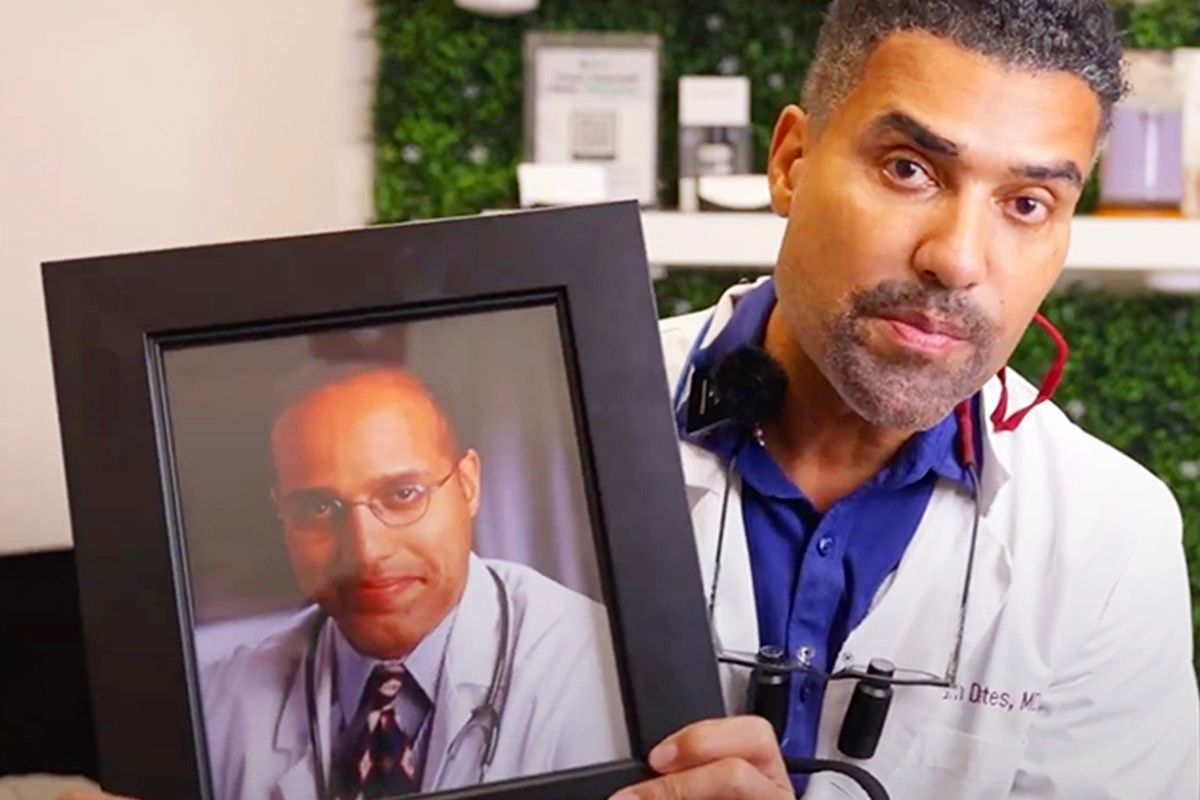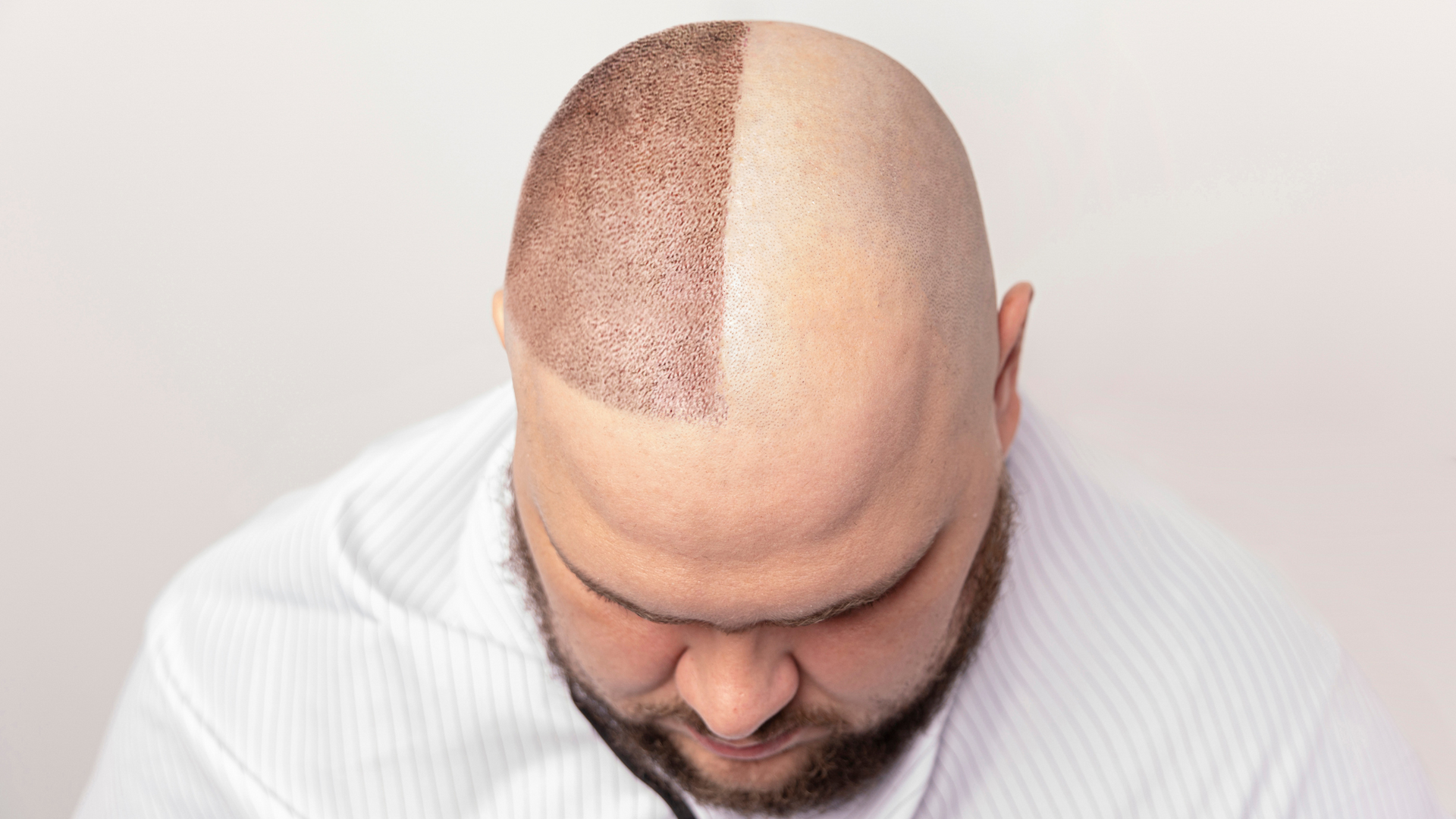



Are you familiar with the term "FUE hair transplant"? If you're not, you're not alone. This term, short for Follicular Unit Extraction, is a revolutionary technique in the world of hair restoration that's helping men and women regain their confidence, one strand at a time.
What is FUE Hair Transplant?
The FUE hair transplant technique involves the removal of individual hair follicles from a certain region on your body, typically the rear of your head, and relocating them to areas where hair loss or thinning is evident. It's a minimally invasive procedure with an impressive success rate.
Why Choose FUE Hair Transplant?
if you are considering FUE hair transplant but are unsure if it's the right choice for you, here are some compelling reasons why you should consider it:
One of the most significant advantages of the FUE hair transplant method is the minimal scarring it leaves behind. Traditional methods like Follicular Unit Transplantation (FUT) involve extracting a strip of skin with hair follicles, which often results in a noticeable linear scar.
On the other hand, FUE hair transplant uses a punch tool to extract individual follicles, resulting in tiny dot scars that are barely visible, even with shorter hairstyles. This means you can confidently wear your hair however you like without worrying about hiding any unsightly scars.
FUE hair transplant is a less invasive procedure compared to other methods, leading to a faster recovery period. With FUE, you can expect to return to your daily activities within a few days post-procedure. This quick recovery time is a boon for those who lead busy lives and can't afford extensive downtime.
FUE hair transplant provides exceptionally natural-looking results. The procedure involves transplanting individual hair follicles, allowing your surgeon to place the grafts in a way that matches your natural hair growth pattern. This meticulous approach ensures that your transplanted hair blends seamlessly with your existing hair, providing a result that's virtually undetectable.
The FUE hair transplant method is a flexible treatment capable of addressing numerous forms of hair loss, encompassing both male and female pattern baldness, alopecia areata, as well as hair thinning caused by injuries or burns. Furthermore, FUE can be used for eyebrow and beard transplants, making it a comprehensive solution for various hair restoration needs.
FUE hair transplant boasts a high success rate. According to a study published in the Archives of Plastic Surgery, the survival rate of grafts in FUE is 80.67%. This high success rate is partly due to the meticulous extraction process that ensures the follicles remain undamaged during extraction and transplantation.
One of the key benefits that make FUE hair transplant a top choice is the reduced pain and discomfort during and after the procedure. Unlike other methods that may involve larger incisions and stitches, FUE involves making tiny punctures in the skin to extract and implant the follicles. This results in less pain and discomfort, making the procedure more comfortable for patients.
FUE hair transplant is not limited to a specific hair type. FUE can work effectively for patients with straight, wavy, curly, or tightly coiled hair. The procedure involves the transplantation of your own hair, ensuring that the transplanted hair matches the rest of your hair in terms of color, texture, and growth pattern.
When it comes to hair restoration procedures, longevity of results is a critical factor. FUE hair transplant offers long-lasting and in many cases, permanent results. Once the transplanted hair follicles establish themselves in their new location, they continue to grow just like the rest of your hair.
The FUE hair transplant procedure can be tailored to meet your specific needs and expectations. Your surgeon will collaborate closely with you to comprehend your aspirations for hair restoration and formulate a strategy that yields the most favorable results. This customized methodology guarantees a result that augments your innate features and elevates your self-assurance.
Unlike other hair transplant methods, FUE has fewer post-operative restrictions. You won't have to worry about stitches or large wounds, which means you can return to your normal activities sooner. Plus, you can even wash your hair gently a few days after the procedure.
With FUE hair transplant, there is less risk of complications such as nerve damage or major scarring. This is because the procedure does not involve any deep incisions or sutures. As a result, the risk of infection or significant scarring is greatly reduced.
FUE hair transplant is also ideal for individuals who have limited donor hair. Since this method involves the extraction of individual follicles, it allows the surgeon to make the most of the available donor hair. This makes FUE a great option for those with limited donor hair or those who wish to wear their hair short.
Perhaps the most significant benefit of FUE hair transplant is the boost in self-esteem and confidence that comes with it. Hair loss can be a distressing experience, impacting various aspects of your life, including your confidence and self-image. By restoring your hair, FUE hair transplant can help you regain your confidence and feel good about yourself again.
The FUE hair transplant method offers a range of benefits, including minimal invasiveness, natural-looking results, versatility, and cost-effectiveness. It's always recommended to consult with a hair restoration specialist to understand if this treatment is the best fit for your individual needs and circumstances.
Trust Yates MD for Your FUE Hair Transplant
Choosing the right clinic for your hair restoration journey is crucial. At Yates MD, we are committed to providing our patients with state-of-the-art FUE hair transplant procedures that deliver natural-looking, long-lasting results. Our team of experienced professionals understands the impact of hair loss on your self-esteem and quality of life, and we're here to help you regain your confidence.
Visit Yates MD today to learn more about how we can help you on your hair restoration journey.
Conclusion: Why Choose FUE Hair Transplant
FUE hair transplant offers several advantages over other hair restoration methods. From minimal scarring and quick recovery time to natural-looking results and high success rate, it's clear why FUE is becoming the go-to choice for many individuals facing hair loss.



Ready to love your hair? Call 312.883.9617 for a consultation or fill out the form below
OUR LOCATION
213 N. Stetson Ave
Chicago, IL 60601
HOURS
Copyright ©2025 Dr. Yates Hair Science | All Rights Reserved
Powered by HEAVY LEVITY